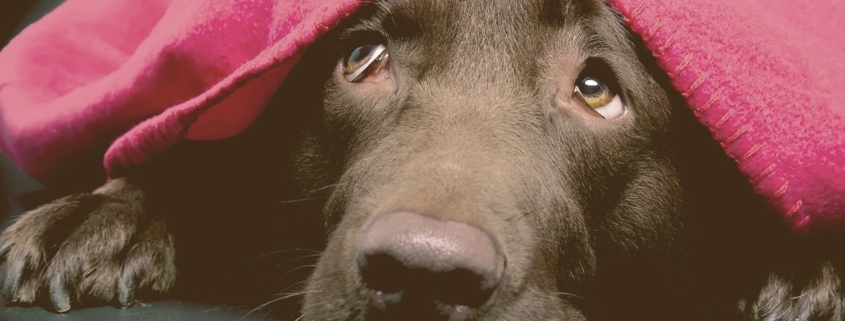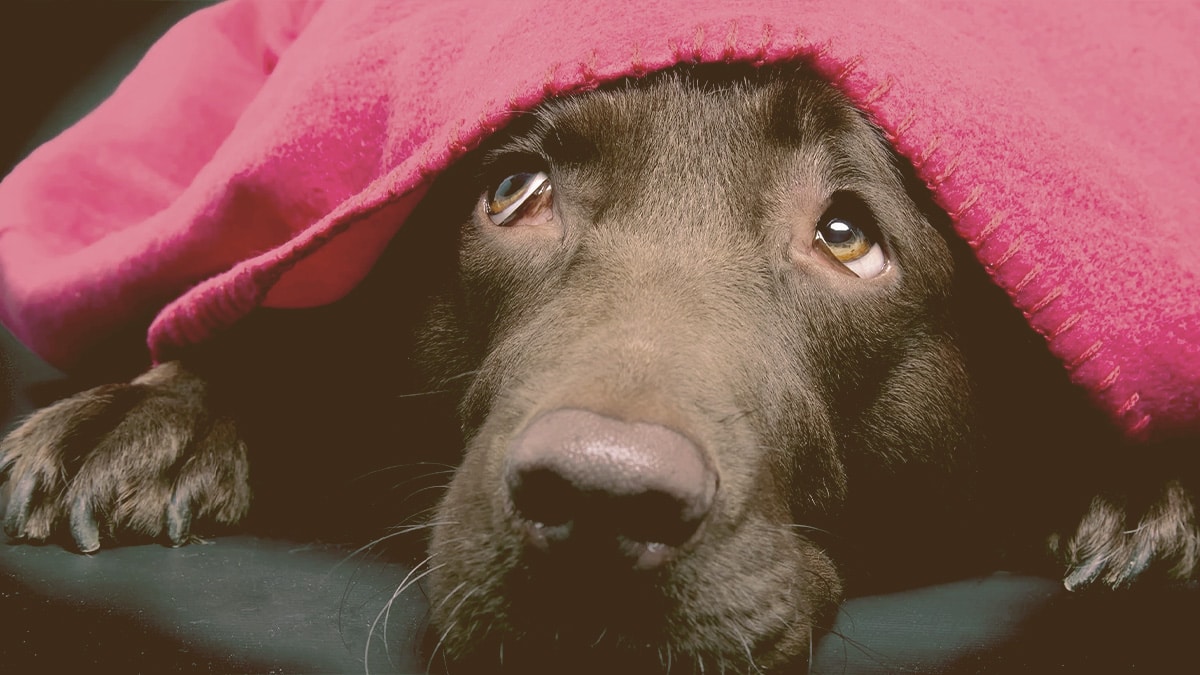
10 Reasons Your Dog Freaks Out at Night
Alex Vicente • Updated on August 1, 2023
- This review contains affiliate links. Read more here.
- Not a substitute for professional veterinary help.
If your dog freaks out at night and starts chewing things up, barking, and/or acting restless, it is an indication of a problem.
Still, there are many different complications that can lead to a dog acting up at night.
To address these issues, you have to first understand exactly what they are.
If you’re looking to discover why your dog is freaking out at night, you’ve come to the right place.
In the following sections we’ll break down the many different causes of restlessness and bad behavior in dogs at night.
We’ll also provide you with some simple solutions and tips that could get you a better night sleep in no time.
Table of Contents
Why’s Your Dog So Restless at Night?
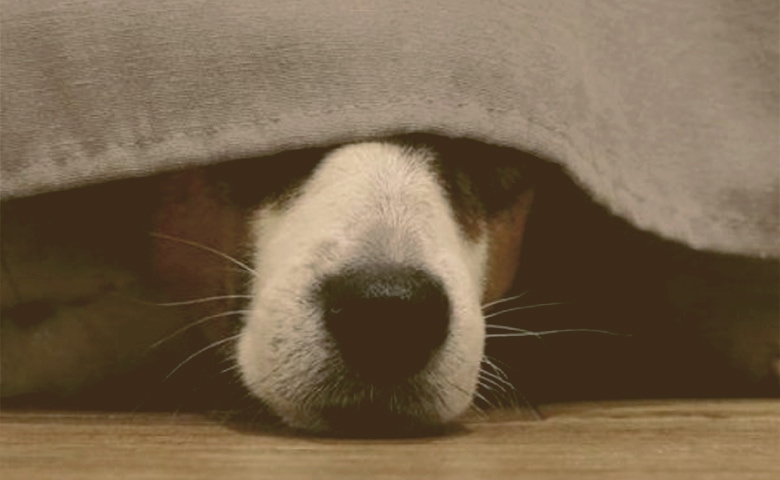
So your dog is up and about when they’re not supposed to be. They may be barking, tearing things up or just acting generally restless. Why does this happen and what can be done about it?
There are many different problems that cause a dog to act restless, or crazy, at night. It could be problems with the environment, certain medical issues, not enough attention during the daytime and more.
To narrow what your specific dog’s problem is, you’ll want to pay attention to other symptoms, what their environment looks like and how much activity they’re getting. Then you want to compare that with the most common issues that cause dogs to act wild at night.
Fortunately, in the following sections we have put together a list of the 10 most common reasons dogs freak out at night, so you can discover what’s ailing your buddy:
There Are Problems With Your Dog’s Sleeping Environment
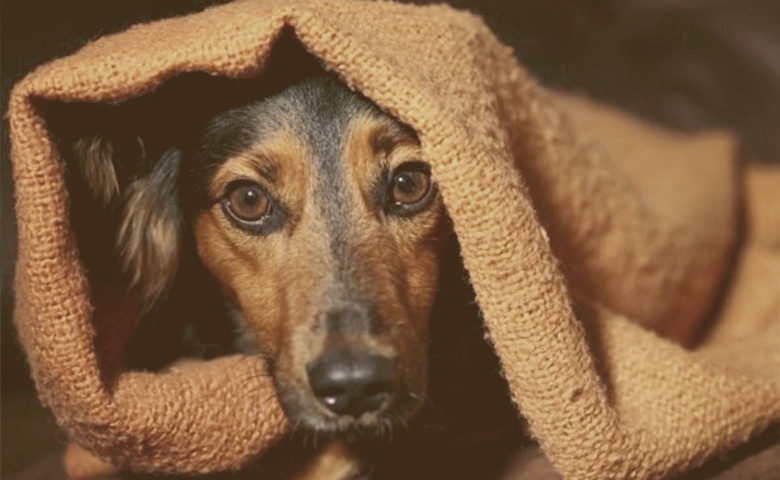
Like humans, dogs can experience problems settling down for the night when their environment isn’t conducive to sleep. Changing a few simple things will not only improve your dog’s sleep, but it will improve yours as well. You won’t have to get up to calm them down over and over again.
The following tips will help you figure out if your dogs nighttime environment is causing their sleep disturbances:
- Your sleep schedule is throwing them off: If you have a crazy work schedule or you’re just a night owl, you may be disturbing your dog’s sleep. Finding a different space to be in when you’re pulling a late night can really help. It can also help to make sure that anything you might need during the night isn’t in the room with your dog.
- The room is too hot/cold: If it’s too hot or too cold in your house it can disrupt your dog’s rest. They may have trouble staying asleep or even falling asleep in the first place. You’ll want to keep the temperature 75° F to 78° F in the summer and 68° F to 72° F in the winter, for most dogs.
- There’s too much light in the room: Dogs operate on a circadian rhythm just like humans. If you’re leaving on a light in the room where your dog sleeps, you could be interrupting that rhythm and causing problems with sleep transitions. The simple solution is to get rid of that source of light when it’s close to bedtime.
- You’ve put up holiday decorations: Okay, this kind of goes with the previous issue. If you like to put up lights during Halloween, Christmas or any other holiday, consider turning them off at night. They may be what’s keeping your dog awake.
You don’t have to make every change overnight, however please remember that all of these seemingly small things–like having a dull light on–add up to big problems. Sleep is the key to better behavior at night and during the daytime. If you can take a holistic approach to fixing their environment, your dog will be happier for it.
Your Dog’s Bladder is Full
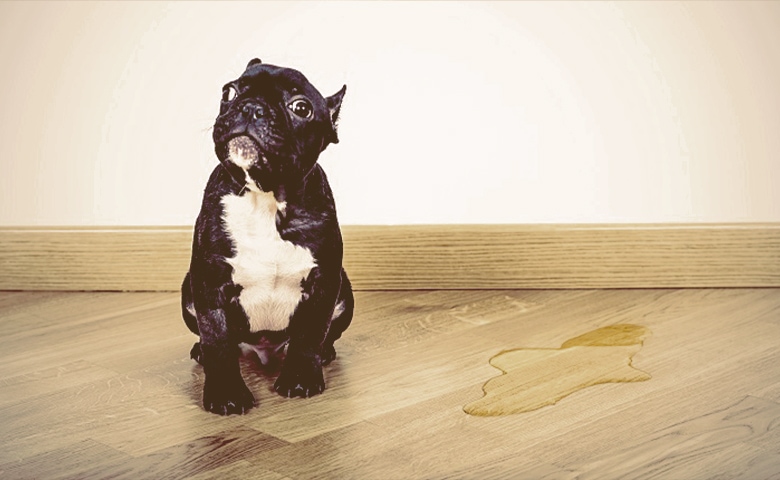
If your dog is consuming a lot of water before bed, they’re going to get uncomfortable when you’re no longer up to take them out.
The solution to this problem is relatively simple. Try adjusting their last meal time to a little earlier in the day, so by the time bedtime comes they aren’t taking in as much water. Also watch out for too much play before bed as it can lead to them drinking more water than they otherwise would.
If your dog seems to be urinating at a frequency that doesn’t correspond to how much fluid they’re taking in, you’ll want to schedule a trip to your vet as soon as possible. Uncharacteristic, frequent urination can be a sign of a deeper issue.
For example, issues with the kidneys can cause water to go through a dog’s system much more quickly than normal. If you suspect a deeper issue it’s a good idea to get an evaluation from a professional.
Your Dog isn’t Getting Enough Physical Activity During the Day
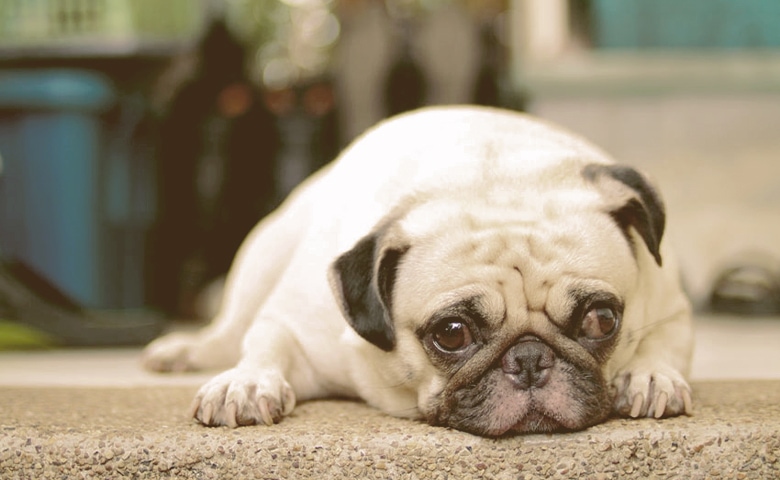
Dogs vary in how much attention and physical activity they need during the day. Still, they all need some. If you have a busy schedule sometimes it can be difficult to get that time in with them. Unfortunately, as a result they will begin acting up because of all their excess energy.
To solve this problem, you really need to create and stick to a schedule that involves working out with your dog. If you have a spouse or friend who lives with you, you can try to trade off which days you are responsible for the dog’s fun time.
The nice thing about giving your dog more physical activity, is that it will not only improve their nighttime behavior, but it will improve their behavior during the day as well. Games are a great way to teach your dog new tricks, while giving them the much needed enrichment they deserve.
Your Dog is Experiencing Anxiety
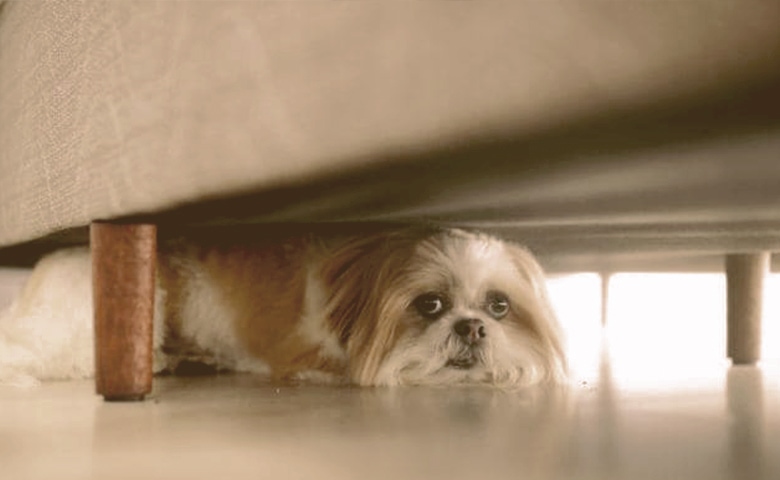
Dogs get anxious too. If your dog is experiencing nighttime anxiety they’ll almost certainly begin acting out in one way or another. This could include pacing, barking or even chewing up all of your furniture and shoes.
What Types of Anxiety Keep Dogs Up at Night
Dogs can suffer from a variety of anxiety problems. Some of them are triggered by the absence of certain stimuli while others are caused by overstimulation.
The following types of anxiety are common in dogs and can lead to restlessness and bad behavior at night:
- Separation anxiety: Dogs get separation anxiety when their owners are away from them. There are multiple ways of dealing with this. Probably the simplest and one of the best ways is to increase the time you spend with them during the day. On the other hand, if you already are you could try exposure therapy.
- Noise Phobia: If you live in an area where there are loud noises at night, your dog may just be reacting to them. If the problem is severe enough your vet may recommend medication. Otherwise you can use white noise machines to try and drown the sound out.
- Aging anxiety: As they grow older many dogs begin to experience anxiety. They may become overly clingy or frustrated with confusion. If your dog is older and has begun acting in an anxious way, you should see the vet immediately, as it could be a sign of a more serious condition.
Anxiety can be hard on a dog. Fortunately, there are many treatment options available. If you believe your dog may be experiencing some of these symptoms, talk to your vet today.
You may also want to read:
Dog Anxiety Beds: Do They Work? We Find Out
Your Dog May Be Reacting to Weather or Seasonal Changes
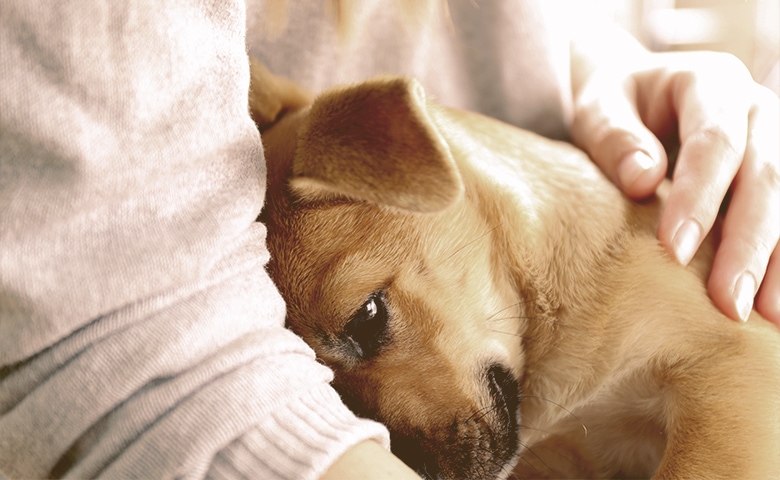
This goes hand in hand with anxiety. Some dogs appear to be sensitive to weather changes. Even some we may find to be mild. If you notice that these behaviors coincide with weather or seasonal changes, this could very well be the problem.
If the temperature dramatically drops or rises outside, you want to make sure that the temp inside stays within the bounds that dogs enjoy. If your dog gets upset when it rains because they don’t want to go outside to use the bathroom, the problem could be temporary, and will resolve when the rain does.
Until then, you can try to notice when their need to use the potty outweighs their fear of going outside.
You Have Visitors Staying With You
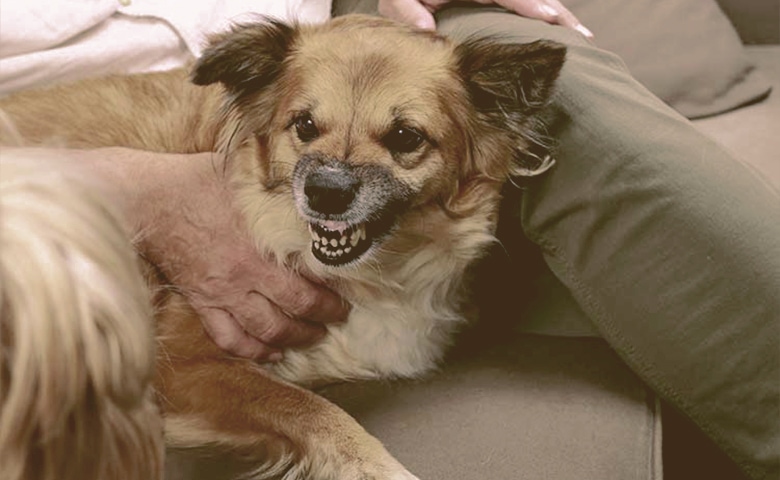
If this has been a short term problem, and if you’ve had visitors over recently, your dog may be exhibiting what is called protection aggression.
Dogs love their owners. Sometimes they love them so much that they perceive anyone new coming over as a threat. Of course, they act accordingly; being on edge, barring their teeth more often and barking/growling.
Fortunately, if this sounds like your situation there is a solution. Usually it involves exposure therapy, where you slowly introduce your dog to the new person. You do it at a distance at first and reward them everytime they don’t react aggressively until they get used to meeting new people.
Your Dog May Have Sustained an Injury
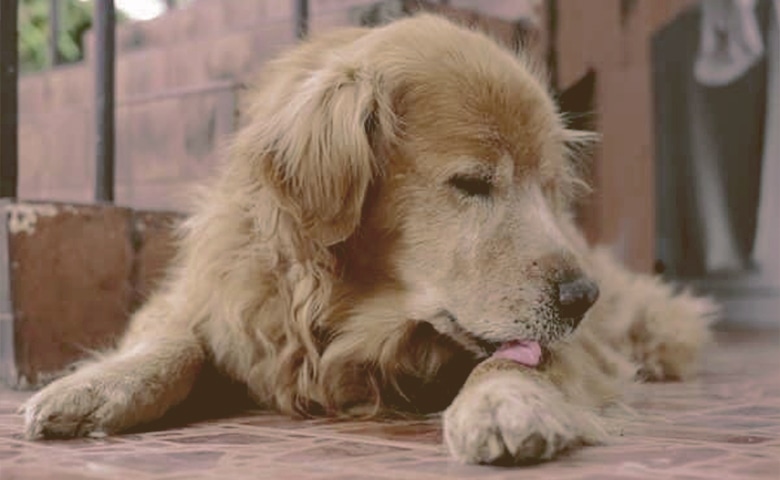
Dogs may not always be able to communicate that they’re in pain. However, it’s not uncommon for a dog to sustain an injury and it goes unnoticed for days because it’s in a spot that isn’t easy to see right away. That’s why it’s so important to be vigilant of the warning signs.
The following signs may indicate that your dog has been physically injured:
- They’re walking funny during the day: The most common sign a dog has sustained an injury is the walking funny. If this happens carefully inspect their legs and their body for any kind of injuries. Also check their paws. If their nails are overgrown it can be pressing into their paw and causing pain.
- They become agitated or lethargic: If your dog is lethargic during the day and restless at night, it’s a sign that they may have sustained an injury. If you inspect them and there is no visible wound, you should take them to the vet as this can be a sign of health problems or internal injuries as well.
- They keep licking themselves: If your dog keeps licking a spot you normally don’t see them clean, it may be the location of their injury. Very carefully inspect the spot for any abrasions.
- They’re acting irritable: If your dog is normally fun loving, but now they snap at anyone who dares to try and pet them, chances are they’re in some type of pain. This is one of the most common signs that they not only have an injury but a particularly tender one. They’re keeping people away to prevent them from touching it and worsening it.
If you do find an injury, it’s important that you try to avoid putting any pressure on the wound. Instead try to make your doggo as comfortable as possible until you can get them into the vet. Remember, even seemingly minor injuries should be checked out, as there could be internal injuries that are related.
Your Dog May Have a Medical Issue
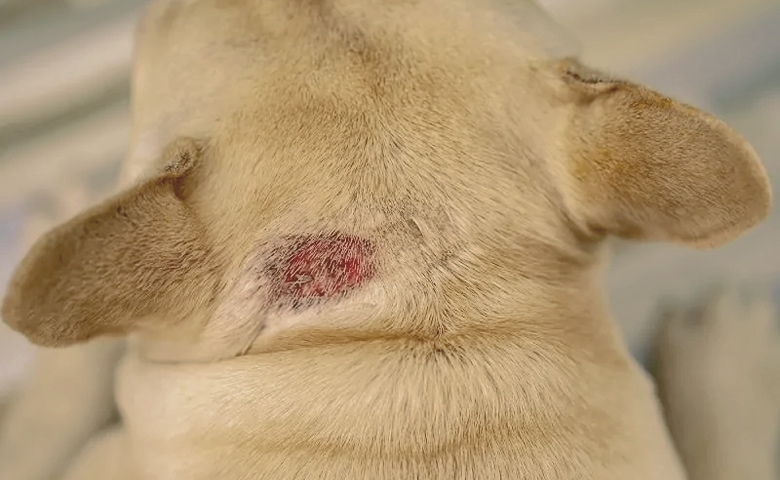
There are many medical problems—some mild and others serious—which can cause your dog to become restless at night. In a lot of cases, the problem is simply depriving them of sleep and causing them to act restlessly. Just think about the last time you just needed to sleep but stared at the clock all night instead and you’ll know exactly how frustrating that can be.
Mild Medical Issues That Cause Misbehavior
The following issues are relatively easy to treat, however they can keep your dog up at night. Because they are painful or irritating they can make it hard to rest, increasing unwanted late night behaviors.
- Arthritis: Some dog breeds are more prone to it than others, however any dog can develop arthritis. If they have, the pain could be keeping them up at night and leading to anything from howling to restless behavior.
- Infections/rashes: When a dog has an infection or a rash it can be hard to spot at first. The infection may not be visible at all and the rash could be covered with fur. Visible or not however, both of these can keep your dog up at night when they should be resting.
Serious Medical Problems That Cause Restlessness
The following issues are generally seen as serious and require immediate professional care. Don’t freak yourself out too much however, because all of these issues have treatment options available should they be the problem.
- Cognitive dysfunction: This is a particularly large possibility if your dog is getting into their twilight years. Many breeds of dogs get less sleep as they age. Still, if they’re also acting restless they could be experiencing some cognitive dysfunctions that need addressing. Vets generally prescribe medications to deal with these issues.
- Cushing’s syndrome: Dogs sometimes begin over producing the stress hormone cortisol. When this happens they may appear out of it during the day, panting more than normal, and restless at night. The kind of thing you’d expect to keep you up at night would be panting, heavy breathing and pacing.
Pay close attention to what your dog is doing during the day because there may be additional symptoms that are less noticeable than their late night restlessness. If you notice them panting heavily, urinating more frequently or generally not acting like themselves, it’s time for a vet’s opinion.
Your Dog Could Be Experiencing Side Effects of Medication
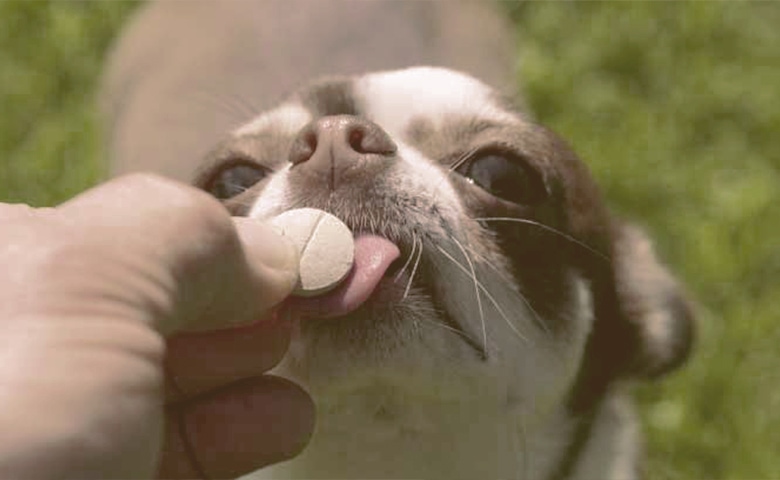
It can be easy to miss the correlation between your dog taking medication and their behavior changing. Especially if the side effects don’t present right away. Still, some medications can cause dogs to misbehave or act restless and aggressive.
If your dog has started taking medication within the past month and now they’re freaking out at night, you should talk to your vet about taking them off of it. It’s best if you make as many observations as possible before you see them however, because it will help them rule out other problems first.
It’s important that you don’t take them off the medication immediately without consulting a professional, as it could potentially be dangerous, depending on the medication. That being said, it’s also important that you get a hold of them quickly because the side effects of some medications can cause seizures.
So Really, Why is Your Dog Freaking Out at Night?

If your dog is freaking out at night, you’ll want to explore all the possible reasons why. Causes for restlessness and bad behavior range from having too little activity in the daytime to serious health concerns like heart failure. Fortunately, there are many treatments available for each of these problems. Once you discover what they are, you can do something about them.
If your dog isn’t getting enough attention during the day you can establish a care plan. If they’re suffering from anxiety, there are therapies and medications available to help. The same is true for physical health concerns. The key is to find the treatment that works best for your dog. That starts with observing their behaviors more closely with this knowledge in mind.

